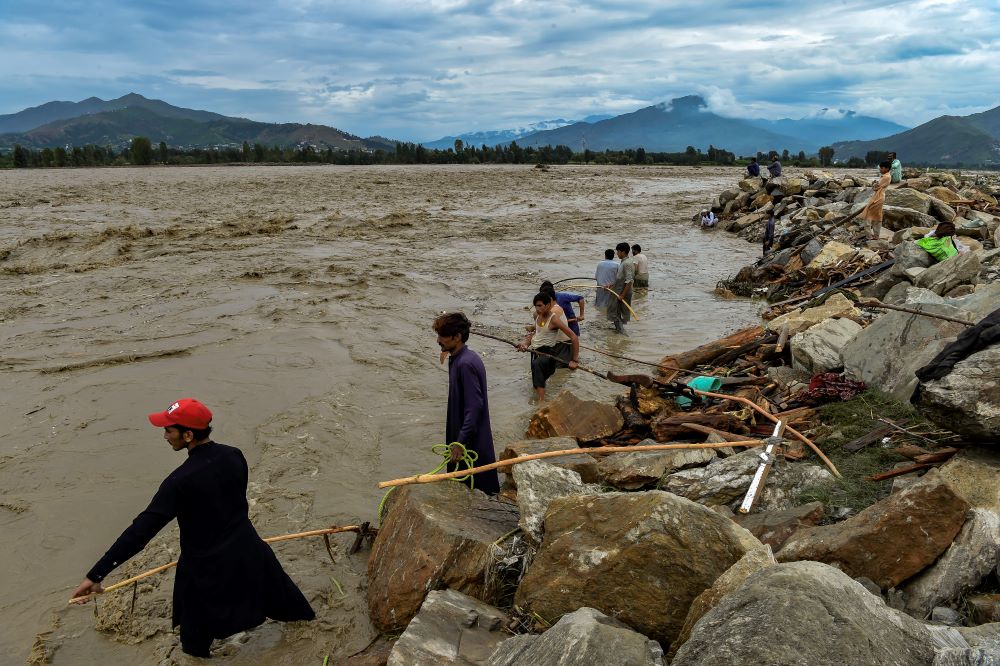Mingora: Thousands of people living near flood-swollen rivers in Pakistan's north were ordered to evacuate Saturday as the death toll from devastating monsoon rains neared 1,000 with no end in sight. Many rivers in Khyber Pakhtunkhwa -- a picturesque province of rugged mountains and valleys -- have burst their banks, demolishing scores of buildings including a 150-room hotel that crumbled into a raging torrent. "The house which we built with years of hard work started sinking in front of our eyes," said Junaid Khan, 23, the owner of two fish farms in Chrasadda. "We sat on the side of the road and watched our dream house sinking."
Climate change
Officials blame the devastation on man-made climate change, saying Pakistan is unfairly bearing the consequences of irresponsible environmental practices elsewhere in the world. Pakistan is eighth on the Global Climate Risk Index, a list compiled by the environmental NGO Germanwatch of countries deemed most vulnerable to extreme weather caused by climate change. Still, local authorities must shoulder some of the blame for the devastation.
Corruption, poor planning and the flouting of local regulations mean thousands of buildings have been erected in areas prone to seasonal flooding -- albeit not as bad as this year. The government has declared an emergency and mobilized the military to deal with what Climate Change Minister Sherry Rehman on Wednesday called "a catastrophe of epic scale". According to the National Disaster Management Authority, since the monsoon started in June more than two million acres of cultivated crops have been wiped out, 3,100 kilometers (1,900 miles) of roads have been destroyed and 149 bridges have been washed away.
In Sukkur, more than 1,000 kilometers south of Swat, farmlands irrigated by the Indus were under water, and tens of thousands of people were seeking shelter on elevated roads and highways as they waited for fresh torrents from the north. "We have opened the gates fully," dam supervisor Aziz Soomro told AFP, adding the main rush of water was expected Sunday. The flooding could not come at a worse time for Pakistan, whose economy is in free fall and whose politics are gripped by crisis following the ousting of former prime minister Imran Khan by a parliamentary vote of no confidence in April.



